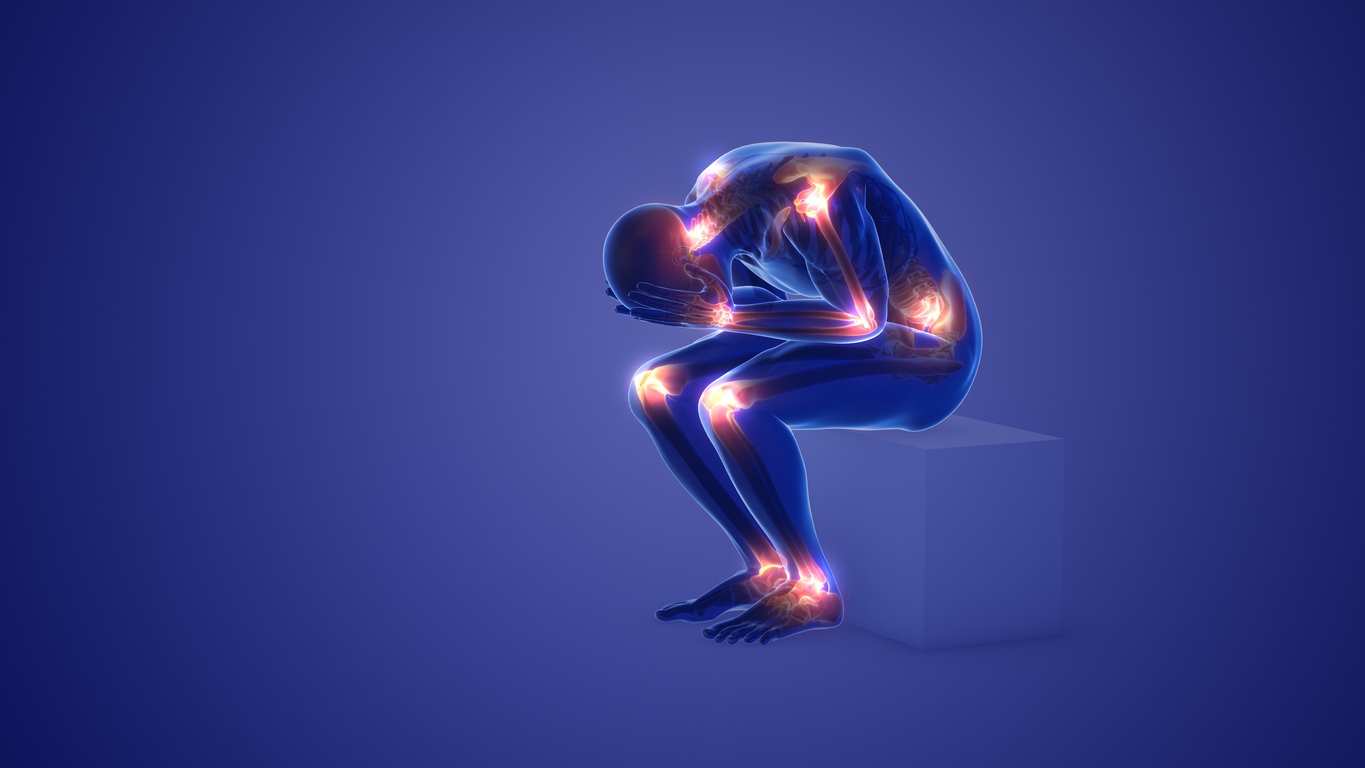“This pain affects me everywhere from my head to my toes, it’s starting to get on my nerves…literally.” Peripheral neuropathy is often the name and culprit behind the medical label of chronic pain. The simplest definition of this condition is damaged nerves that are located throughout the body. According to the OHSU Brain Institute there are an estimated thirty million cases of peripheral neuropathy in America, with many undiagnosed. Before learning about neuropathy and experiencing it during my past flares, I perceived nerve damage to stem from physical trauma. The truth is that there is a wide range of nerve damage causes and with various effects on the body. The vicious cycle of inflammation leading to damaged nerves and pain can be addressed with a non-pharmaceutical response. I am not speaking down on anyone who relies on pharmaceuticals to treat their neuropathy. My goal is to shine light on the different approaches to manage it. I believe this pain epidemic should be reconsidered from a preventative and educational perspective.
As I previously mentioned, there are multiple reasons why neuropathy can take place. My focus in this post is for those who are dealing with it from systemic inflammation caused by diet or autoimmune conditions. Aside from intense physical pain, there are aspects of the vital autonomous nervous system that can be negatively affected by damaged nerves. This system maintains regulation between three divisions which are parasympathetic, sympathetic, and enteric systems. The parasympathetic and sympathetic functions are involved in contrasting roles with one being a rest and digest state and the other is a fight or flight response. When there is an imbalance, excess cortisol can cause high stress and anxiety that is not necessary.
The enteric nervous system is part of what is known as the brain and gut axis. It contains more neurotransmitters than the brain and more nerve endings than the spine. This explains why your gut reacts to mental stress. A key player in this unique system is the vagus nerve. The functions of the vagus nerve include the regulation of stomach acid, motor coordination, intestinal inflammation, and peristalsis of your digestive tract also known as motility. There have been numerous cases where a malfunctioning vagus nerve can result in similar characteristics of small intestinal bacterial overgrowth (SIBO) and gastroparesis. This is a brief explanation of the role that nerves have in our daily lives and the need to keep them functioning correctly.
In order to heal or fix something, the structure and necessities required must be understood. The obvious question that came to me was “What do nerves and the nervous system require to function adequately?” When a nerve is damaged, the outer layer which is called a myelin sheath has eroded and exposes the interior nerve. Vitamin B12, Zinc, and vitamin C are essential for myelin regeneration and are found in numerous foods and may not require the need for supplementation. However, I believe that vitamin B1 known as thiamine is highly overlooked in this equation. The need for supplementation is required for me because my diet does not consist of the foods that contain it. Stress and inflammation deplete thiamine levels, creating a greater need for it. There are different forms of B1 that have varying levels of bioavailability. Benfotiamine is my preferred form because it has great absorption and can penetrate cells unlike other forms.
Why is thiamine important for nerve function? Thiamine possesses neuroprotective modulation that has a direct impact with a neurotransmitter called acetylcholine. Acetylcholine is what the vagus nerve releases to regulate the physiological responsibilities of the autonomous nervous system. In simple terms it has an in-depth role that oversees maintaining multiple functions of the body in harmony. I take 300mg of benfotiamine daily and I believe it contributes to my well-being. Since B vitamins are water soluble, it would be hard to overdose if a person maintains adequate hydration.
Another important player for nerve health is magnesium, this mineral has a myriad of benefits. Magnesium helps to control muscle contractions and coordination including maintaining normal heartbeat rhythm. There is data that suggests it has neuroprotective properties and is commonly used for neurological disorders like Alzheimer’s, epilepsy, and Parkinsons’s disease. Many reviews online continually mention its positive effects towards anxiety and stress as well. Like thiamine, magnesium also has a variety of forms that have noticeable differences. The form I believe is the most beneficial is called magnesium glycinate. This type is known to be gentle on the stomach, unlike others that do commonly cause stomach upset. Magnesium glycinate also helps manage blood sugar levels for those who deal with nerve pain from diabetes.
Lastly, I can’t stress enough the importance of a diet that resists pro-inflammatory foods. Inflammation takes place before nerves are damaged and must be addressed for the best outcome. Diets that are free of processed foods and contain whole foods like the DASH diet and the Mediterranean Diet can be very beneficial. Incorporating omega-3 acids, antioxidants, and necessary nutrients will make a definite impact on combating inflammation. There are some supplemental options that can address both inflammation and pain that have helped many with conditions like arthritis, fibromyalgia, and IBD. Four therapies that should be considered are cod liver oil, vitamin D, turmeric, and specific forms of cannabis. All of these will have improved absorption if consumed with healthy fats.
This post is for those who struggle with the burning pain that I’m familiar with. I believe the types of therapies I mentioned could minimize the use of opioids and corticosteroid injections. A healthy nervous system and lifestyle can also decrease the need for anxiety and depression prescriptions. Some causes of pain are inevitable, but others can be avoided or reversed with time and patience. I admire all of you who don’t quit, may a new door of healing be given to you.





